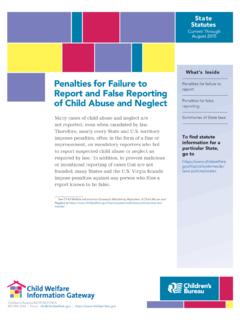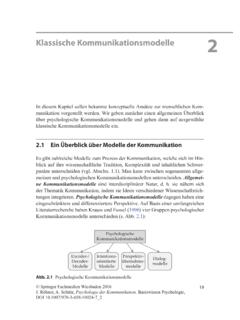Transcription of Understanding Patriarchy - imaginenoborders.org
1 Patriarchy is the single most life-threatening social disease assaulting the male body and spirit in our nation. Yet most men do not use the word Patriarchy in everyday life. Most men never think about Patriarchy what it means, how it is created and sustained. Many men in our nation would not be able to spell the word or pronounce it correctly. The word Patriarchy just is not a part of their normal everyday thought or speech. Men who have heard and know the word usually associate it with women s liberation, with feminism, and therefore dismiss it as irrelevant to their own experiences. I have been standing at podiums talking about Patriarchy for more than thirty years.
2 It is a word I use daily, and men who hear me use it often ask me what I mean by it. Nothing discounts the old antifeminist projection of men as all-powerful more than their basic ignorance of a major facet of the political system that shapes and informs male identity and sense of self from birth until death. I often use the phrase imperialist white-supremacist capitalist Patriarchy to describe the interlocking political systems that are the foundation of our nation s politics. Of these systems the one that we all learn the most about growing up is the system of Patriarchy , even if we never know the word, because patriarchal gender roles are assigned to us as children and we are given continual guidance about the ways we can best fulfill these roles.
3 Patriarchy is a political-social system that insists that males are inherently dominating, superior to everything and everyone deemed weak, especially females, and endowed with the right to dominate and rule over the weak and to maintain that dominance through various forms of psychological terrorism and violence. When my older brother and I were born with a year separating us in age, Patriarchy determined how we would each be regarded by our parents. Both our parents believed in Patriarchy ; they had been taught patriarchal thinking through religion. At church they had learned that God created man to rule the world and everything in it and that it was the work of women to help men perform these tasks, to obey, and to always assume a subordinate role in relation to a powerful man.
4 They were taught that God was male. These teachings were reinforced in every institution they encountered-- schools, courthouses, clubs, sports arenas, as well as churches. Embracing patriarchal thinking, like everyone else around them, they taught it to their children because it seemed like a natural way to organize life. As their daughter I was taught that it was my role to serve, to be weak, to be free from the burden of thinking, to caretake and nurture others. My brother was taught that it was his role to be served; to provide; to be strong; to think, strategize, and plan; and to refuse to caretake or nurture others. I was taught that it was not proper for a female to be violent, that it was unnatural.
5 My brother was taught hat his value would be determined by his will to do violence (albeit in appropriate settings). He was taught that for a boy, enjoying violence was a good thing (albeit in appropriate settings). He was taught that a boy should not express feelings. I was taught that girls could and should express feelings, or at least some of them. When I responded with rage at being denied a toy, I was taught as a girl in a patriarchal household that rage was not an appropriate feminine feeling, that it should be not only not be expressed but be eradicated. When my brother responded with rage at being denied a toy, he was taught as a boy in a patriarchal household that his ability to express rage was good but that he had to learn the best setting to unleash his hostility.
6 It was not good for him to use his rage to oppose the wishes of his parents, but later, when he grew up, he was taught that rage was permitted and that allowing rage to provoke him to violence would help him protect home and nation. We lived in farm country, isolated from other people. Our sense of gender roles was learned from our parents, from the ways we saw them behave. My brother and I remember our confusion about gender. In reality I was stronger and more violent than my brother, which we learned quickly was bad. And he was a gentle, peaceful boy, which we learned was really bad. Although we were often confused, we knew one fact for certain: we could not be and act the way we wanted to, doing what we felt like.
7 It was clear to us that our behavior had to follow a predetermined, gendered script. We both learned the word Patriarchy in our adult life, when we learned that the script that had determined what we should be, the identities we should make, was based on patriarchal values and beliefs about gender. I was always more interested in challenging Patriarchy than my brother was because it was the system that was always leaving me out of things that I wanted to be part of. In our family life of the fifties, marbles were a boy s game. My brother had inherited his marbles from men in the family; he had a tin box to keep them in. All sizes and shapes, marvelously colored, they were to my eye the most beautiful objects.
8 We played together with them, often with me aggressively UnderstandingPatriarchybell hooks2 Understanding Patriarchy clinging to the marble I liked best, refusing to share. When Dad was at work, our stay-at-home mom was quite content to see us playing marbles together. Yet Dad, looking at our play from a patriarchal perspective, was disturbed by what he saw. His daughter, aggressive and competitive, was a better player than his son. His son was passive; the boy did not really seem to care who won and was willing to give over marbles on demand. Dad decided that this play had to end, that both my brother and I needed to learn a lesson about appropriate gender roles.
9 One evening my brother was given permission by Dad to bring out the tin of marbles. I announced my desire to play and was told by my brother that girls did not play with marbles, that it was a boy s game. This made no sense to my four- or five-year-old mind, and I insisted on my right to play by picking up marbles and shooting them. Dad intervened to tell me to stop. I did not listen. His voice grew louder and louder. Then suddenly he snatched me up, broke a board from our screen door, and began to beat me with it, telling me, You re just a little girl. When I tell you to do something, I mean for you to do it. He beat me and he beat me, wanting me to acknowledge that I understood what I had done.
10 His rage, his violence captured everyone s attention. Our family sat spellbound, rapt before the pornography of patriarchal violence. After this beating I was banished forced to stay alone in the dark. Mama came into the bedroom to soothe the pain, telling me in her soft southern voice, I tried to warn you. You need to accept that you are just a little girl and girls can t do what boys do. In service to Patriarchy her task was to reinforce that Dad had done the right thing by, putting me in my place, by restoring the natural social order. I remember this traumatic event so well because it was a story told again and again within our family. No one cared that the constant retelling might trigger post-traumatic stress; the retelling was necessary to reinforce both the message and the remembered state of absolute powerlessness.







